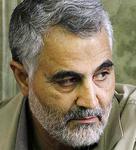Iran, the Beast Unchained?
Abdulrahman Al-Rashed/Asharq Al Awsat
Sunday, 5 Apr, 2015
In my Op-ed yesterday about the framework nuclear deal between the West and Iran, I wrote an analysis of this topic’s previous chapter and sought to understand why Iran accepted the agreement—and at what price. But what is much more important than dwelling on the past is to look at the “new Iran” as a regime no longer subjected to the sanctions and constraints which have restricted its efforts over the past three decades.
I believe that with this deal we are facing an agreement as seismic as the Camp David accords signed between Egypt and Israel in 1979. The Iran nuclear agreement is a strategic one and finally turns the page on Iran’s struggle with the West, also marking the end of its continual threats against the Jewish state, Israel.
This implies an end to the Islamic Republic’s struggle with the Israelis. This is most likely included in the agreement’s main conditions, regardless of what the propaganda machines spin out in Tehran. But if Iran has now exited its struggle with the West and Israel, it will now have more time to preoccupy itself with the current Arab–Iranian struggle and the region’s myriad Sunni–Shi’ite sectarian disputes.
What is crucial for us now in the Arab world in general, and the Gulf states in particular, is to consider our options. So, what options do countries in close geographical proximity to Iran, like Saudi Arabia and other Gulf neighbors, now have? When attempting to answer this question we must bear in mind that these countries have lived through decades of tension and have in the past faced direct military confrontations with Tehran and several dangerous proxy wars it has engaged in—such as in Lebanon and Bahrain in the past, and more recently Yemen and Iraq.
I think there are only two options here: reconciliation or confrontation. In both cases the status quo as we know it will be drastically altered. We are all aware that Gulf countries have always been ready to reconcile with Iran, in light of their peace-loving regimes. However, Iran was usually always on the offensive amid its desires to modify the region according to its own political and ideological interpretations.
I previously wrote in detail about an important initiative led by former Iranian president Akbar Hashemi Rafsanjani in the early 1990s—an initiative which led to reconciliation with Saudi Arabia and an end to the hostile propaganda on both sides. The initiative also led to establishing consulates and allowing both countries’ commercial jets to use each other’s airspace and engage in commercial trade. This lasted for a few years, then relations soured after the Saudis discovered Tehran was engaged in covert subterfuge in the Kingdom. The situation became even more tense after Mahmoud Ahmadinejad assumed power in 2005.
Iran may now want to transform itself through political channels into a peaceful country and thus abandon the idea of exporting revolution and altering the region in its own image—seeing as it is giving up its ambitions to build a nuclear bomb. But we can’t know if this is true unless Gulf countries try to communicate with the Iranians to understand their orientations and figure out whether they really are willing to commit to what serves regional peace and security. This is a difficult idea to imagine (perhaps somewhat akin to holding faith that one day the lambs and the wolves will make peace!) But who knows? Iran may want to change and it deserves that we give it the benefit of the doubt—while also continually testing the credibility of its claims.
The second option is that Iran wants to compensate for its nuclear project—which aims to achieve regional superiority—by expanding and increasing its gains on the ground. We have seen how, despite its peaceful negotiations with the West, Iran dared to send fighters and arms to directly engage in internal Arab conflcits for the first time. It fought alongside the Assad regime in Syria and its forces also currently fight in Iraq and Yemen—this in addition to its role in the struggle in Lebanon. All this hints that Tehran has grown more ruthless, and not the opposite.
In both cases, Gulf countries have to reconsider their defensive policies, which for decades have been based on the Eisenhower Doctrine which is committed to the security of the Gulf. However, with the Obama administration currently in power, the US no longer seems pledged to this, despite the US president maintaining his country remains committed to defending Saudi Arabia’s borders.
This last statement actually doesn’t convey much “commitment” at all and is not really clear-cut in any way, allowing Washington to dodge the topic whenever it wants. The Americans have previously suggested what they then referred to as a “missile defense system” to protect the Gulf from any Iranian attack, but even this is not enough.
Gulf countries must therefore significantly develop their military capabilities—especially their air combat capabilities—and establish and cement their regional alliances. The aim here would be to convince Iran that its nuclear agreement must be a comprehensive peace deal, and not just one exclusively linked to Israel and the West.




















